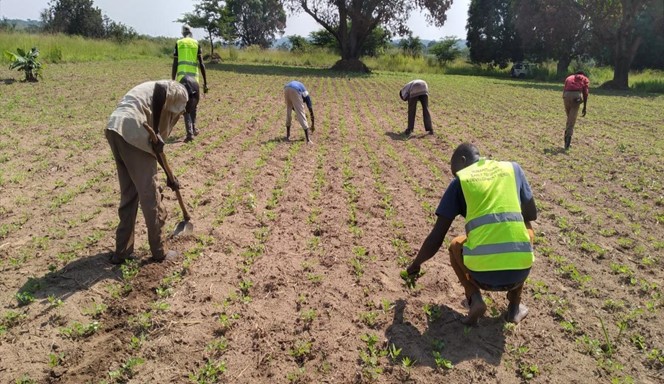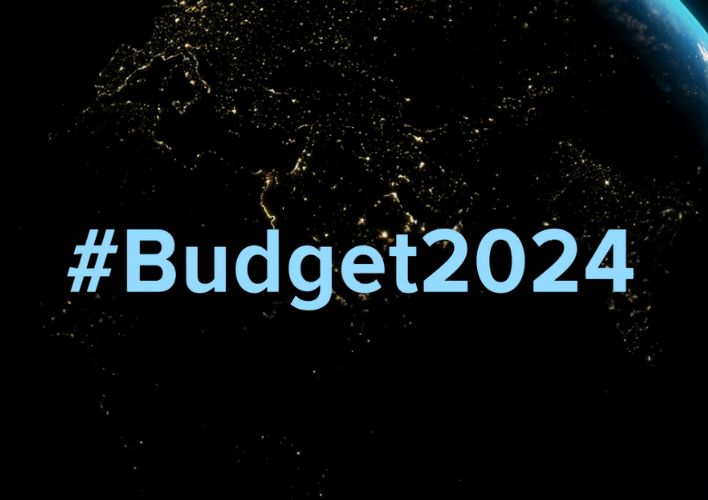After 18 months of the COVID-19 pandemic, Canada seems to be emerging with cautious hope.
Elsewhere, life is going from bad to worse. As developing countries struggle to control the spread of this virus with unpredictable and limited vaccines, in conflict-affected contexts another disaster looms – famine.
About 41 million people, more than the population of Canada, are at risk of starving to death in 2021.
Here on the Prairies, we can see the havoc drought conditions cause farmers. I used to think famine was the most extreme hunger crisis brought on by constant drought. I was partly right.
Drought affects production of food, causing food supply shortages that contribute to famine, but the biggest cause of famine today is extended violent conflict.
In 2021, all the areas at immediate risk of famine are in the conflict-affected contexts of Yemen, South Sudan, northeastern Nigeria and Tigray in Ethiopia. Violent conflict causes famine not only by affecting the production and the distribution of food, but also by preventing humanitarian food assistance from getting to those who need it most.
Much like the process of declaring COVID-19 a pandemic, declaring a famine is a rigorous process involving governments, aid agencies and independent food security experts. A famine declaration means people are dying daily from starvation. It’s already too late for them. But even before the alarms bells sound the risk of famine, hungry people in risk areas are experiencing catastrophic hunger and rely on emergency food assistance to survive.
In the last decade, famine was declared in some areas of southern Somalia from August to September 2011, and in parts of South Sudan in January 2017. The famines were caused by drawn-out violent conflict that broke down food and economic systems, increased food prices and in Somalia’s case, cycles of drought.
But famine is predictable and preventable. Today, warning bells are ringing loud and clear. There is a high risk of famines in 2021.
If we respond now, we can prevent famine. We have done it before. In 2017, Yemen, northeast Nigeria, Somalia and South Sudan were all at risk of famine. Countries across the world responded, including Canada. In three of those four countries, famine was avoided. Responding early saves lives. This August, Canada has given $155 million towards preventing famine. These much-needed funds will save lives.
To prevent famine, we need to respond immediately but also invest long-term to address the deep roots of famine. Two important aspects of a successful response are money and strategic engagement.
Money matters. Today humanitarian needs always outweigh the money available. In the first half of 2021, the United Nation’s World Food Program reported that a funding shortfall necessitated a reduction of rations for food insecure people living in famine-like conditions of Yemen and South Sudan. The pandemic has given us a glimpse of this reality where need is greater than resources and those responding have to make tough decisions. Nobody wants to have to weigh the suffering of others to decide who gets help.
Strategic engagement means responding to immediate needs and investing to address the causes of these needs. For example, diplomacy is essential to ensure the safe passage of humanitarian workers. Despite early warnings of a risk of famine in Ethiopia’s Tigray region, humanitarian response was delayed as aid agencies called for a ceasefire so that they could deliver assistance. Diplomacy supporting peace in conflict-affected countries is crucial.
Famines are rare, but in 2021, conflict, hunger, COVID-19, economic shocks, poverty, drought, locusts are all converging, and tens of millions of people are at the brink of famine. The most vulnerable among them, especially children, risk dying.
Canada should act now by providing financial support for emergency food rations, as well as diplomatic intervention to save lives. And we as a nation must stay engaged to prevent future famines.
Written by Nyambura Githaiga, senior policy advisor for the Canadian Foodgrains Bank. This article was originally published as an op-ed in The Western Producer.



